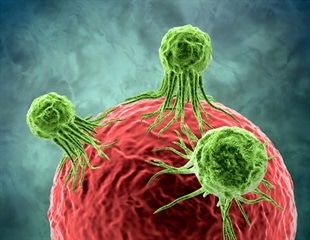By Samuel Mckenzie, BSc
Reviewed by Dr. Jennifer Logan, MD, MPH
Last Updated: Jul 1, 2019
Errors with the metabolism of cells can cause a multitude of different cancers. The metabolic mechanisms in cancerous cells can be forcibly hijacked to further support the cancerous phenotype of these cells.
Fortunately, the metabolism of cancerous cells can be manipulated to provide therapeutic treatment for these cancers.
Cancer risk and metabolism
The idea that cancer is caused by dysfunctional proliferation is widely accepted and supported by the literature. Furthermore, recent discoveries provided from research has shown that metabolic disorders also contribute to the development of various cancers.
Otto Warburg showed that the metabolism of tumor cells varied greatly compared to non-cancerous cells. His research discovered a significant difference in energy consumption between normal and tumorous cells. For normal cells, most pyruvate is oxidized via oxidative phosphorylation after it enters the tricarboxylic acid cycle. On the other hand, tumor cells convert most of their pyruvate into lactic acid which produces energy anaerobically. This is called aerobic glycolysis or the Warburg effect.
Cancer cells evade glycolytic regulatory mechanisms in many different ways. Additionally, cancer cells are able to evade the attention of control mechanisms that limit the rate of glycolysis. This is demonstrated when phosphofructokinase (PFK) becomes less sensitive to ATP inhibition in cancerous cells, which results in no decrease of glucose concentrations in cancerous cells leading to an overly metabolically active cell. Cancer cells can also induce an increased rate of glycolysis by increasing the levels of fructose-2,6-biphosphate.
There are numerous other changes to the metabolism in cancerous cells. Some of which include:
- Increased citrate generation
- Increased intracellular and extracellular lactate generation
- Increased intracellular glucose and glutamine generation
Evidence has shown that elevated glucose consumption and increased lactate secretion in tumor cells contributes to the growth of a tumor. This is exemplified by the increased risk of developing certain cancers (e.g. pancreatic, gastrointestinal tract, liver, colon, and breast cancer) for individuals with elevated blood glucose due to type 2 diabetes mellitus.











